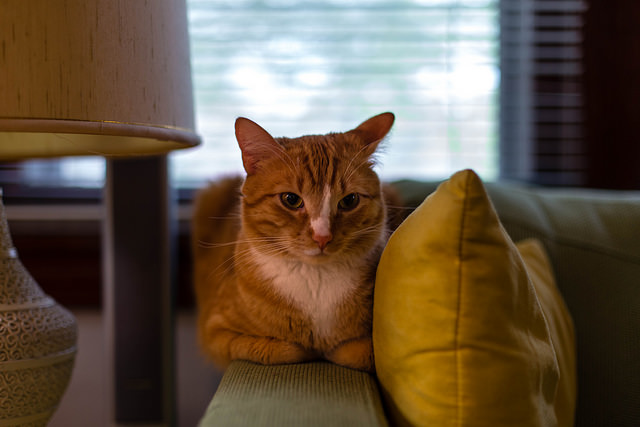Whether you’re planning to entertain guests that are allergic to cats or are suffering from an allergy yourself, there are things you can do to help relieve symptoms. In fact, many cat owners or foster parents are allergic to cats! They just know how to keep their symptoms at bay. A severe allergy can’t be ignored, of course, but things can be done to help make you or your guests more comfortable when sharing a home with a cat or two.
#1 – Clean Often
Yes, we should all be cleaning anyway, but people with allergies to animals often need to clean a little more often than those without. This is because pet dander gets left everywhere very quickly, and leaving it to pile up in the environment can significantly increase your allergy symptoms. Cat dander can be found in your cat’s fur, skin, saliva, and even urine. It’s everywhere, so the more you clean, the less likely you’ll be to encounter excess allergens throughout the day. This will also help anyone coming in who has an allergy to cats.

#2 – Consider a HEPA Filter
HEPA filters are made to remove air pollutants, including pet dander. This reduces your overall exposure to the allergens in the environment. However, it’s recommended you get a filter for each area, rather than one that’s supposed to filter your entire home all at once. Studies have shown that the smaller, more direct filters work better.
#3 – Designate a Pet-Free Area
It’s important to note that pet dander is microscopic and very, very easy to transfer from room to room, even on the smallest piece of clothing. That said, designating a room in your house as a pet-free room can greatly reduce the amount of animal dander in that area. This will offer you a place of refuge, should your allergies rage a heavier war against you than normal, or you need to entertain someone with pet allergies. It’s suggested to keep the HEPA filter in this room as well, since your cat’s dander is likely to get into the pet-free room some way or another. Most people decide to keep their bedrooms pet-free so they can sleep somewhere without a significant amount of animal fur, but we understand that sleeping without the cat might be difficult for some to do!

